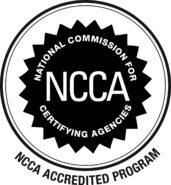How Are Certification Exams Developed?
Elevating Your Professional Excellence Through Certification
ACRP Certification is more than just a credential—it’s a testament to one’s expertise and commitment to excellence in clinical research. Our certification programs are designed to assess a clinical research professional’s understanding of conducting clinical research safely, ethically, and in accordance with the International Conference on Harmonization’s (ICH) efficacy guidelines on: Good Clinical Practice (GCP), Pharmacovigilance, General Considerations for Clinical, Statistical Principles for Clinical Trials, and Clinical Trials in Pediatric Population. To truly serve their purpose, certification exams must assess real-world performance required for specific job roles, reflecting the latest practices and expectations in the field.
The intent of a certification program is to evaluate the knowledge and skills of professionals seeking a credential to ensure a desired level of competence. For certification exams to serve their intended goal, the exam must assess the performance that the specific job requires. A number of widely recognized organizations have established guidelines and standards for how certification exams should be developed.
The Most Reputable Credentialing Program in Clinical Research
 The Academy’s ACRP-CP, CCRC, CCRA, and CPI programs are accredited by the National Commission for Certifying Agencies (NCCA), which sets internationally recognized standards for the development and operation of certification programs. The standards assure that a program is valid, reflects current practice, and treats candidates fairly and are based on the established processes for developing certification exams.
The Academy’s ACRP-CP, CCRC, CCRA, and CPI programs are accredited by the National Commission for Certifying Agencies (NCCA), which sets internationally recognized standards for the development and operation of certification programs. The standards assure that a program is valid, reflects current practice, and treats candidates fairly and are based on the established processes for developing certification exams.
The most respected certification thought leaders in the country agree that NCCA accreditation is the gold standard when it comes to accreditation of programs that certify professionals working in healthcare—including the clinical research industry. When you’re searching for certification programs, make sure you always look for the NCCA-accredited program seal.
How We Build Our Certification Exams
The journey to developing a certification exam begins with a Job Analysis, a thorough research process that identifies the knowledge, skills, and tasks required to perform a specific job role. Conducted every five to seven years, the Job Analysis ensures that our exams reflect current practices in the industry. In 2024, the Academy completed a comprehensive Job Analysis for our ACRP-CP, CCRC, CCRA, and CPI programs. The data gathered from this study directly informed our Examination Content Outlines (ECOs), which detail the essential tasks and knowledge areas for each program.
Following the Job Analysis, a standard setting study is conducted using the modified Angoff method to establish a fair and valid passing standard. A panel of subject matter experts (SMEs) first defines the minimally competent candidate and then evaluates each exam item, predicting the percentage of such candidates who would answer correctly. These predictions are analyzed, discussed, and refined through multiple rounds, ultimately producing a recommended cut score. The Beuk Relative-Absolute Compromise method is then applied to fine-tune the final passing standard. This rigorous process ensures that the exam maintains both fairness and validity, with results incorporated into this report for ACRP’s review.
These ECOs guide the development of our exams, ensuring that the most essential and frequently performed tasks are thoroughly assessed. Starting in 2025, the ACRP-CP, CCRC, CCRA, and CPI examinations will incorporate the updates from our 2024 Job Analysis, aligning them with the latest industry standards.
Learn how you can serve on an Exam Committee for ACRP Certification.
The Role of Subject Matter Experts (SMEs)
ACRP Certified volunteers play a pivotal role in crafting our exams. Known as Subject Matter Experts (SMEs), these volunteers are trained to develop exam questions that align with current clinical research practices as defined by the ECOs. Every question must directly link to one of the approved references to ensure they are based on verifiable, credible sources of information. This process is crucial for upholding the integrity of the certification and for providing candidates with a reliable measure of their knowledge and competence in the field.
Once the draft questions are finalized, they go through a rigorous review process conducted by a Psychometrician and a separate group of SMEs who form the Academy’s Global Exam Committees. These committees, composed of experienced and certified clinical research professionals, review, edit, and refine each question to ensure it meets ACRP’s gold standard. Only questions that are deemed valid, fair, and directly applicable to the job role are approved for the examination.
Learn how you can volunteer as an Item Writer for ACRP Certification.
Ensuring Fairness and Accuracy
Before any question is scored on an exam, it first appears as a “pre-test question.” This allows us to collect statistical data on its performance. Out of 125 questions on each exam, 25 are pre-test questions that help us determine whether they are well-constructed enough to count toward a candidate’s score. If a question doesn’t meet our standards—whether due to poor performance or ambiguity—it’s either revised or discarded.
ACRP’s Academy makes all efforts to recruit SMEs from different geographic regions, practice settings, organizations, and more, to ensure that our exams reflect a broad range of professional environments and perspectives. By following internationally recognized standards and collaborating with leading test development partners, we’re proud to offer certification exams that truly reflect the highest standards of the clinical research profession.
A Legacy of Excellence
Over the last 30 years, ACRP has awarded over 43,000 certifications to clinical research professionals across more than 100 countries. With an average pass rate of 73 percent for first-time test takers, our certification programs are a proven pathway to professional success in the clinical research industry.